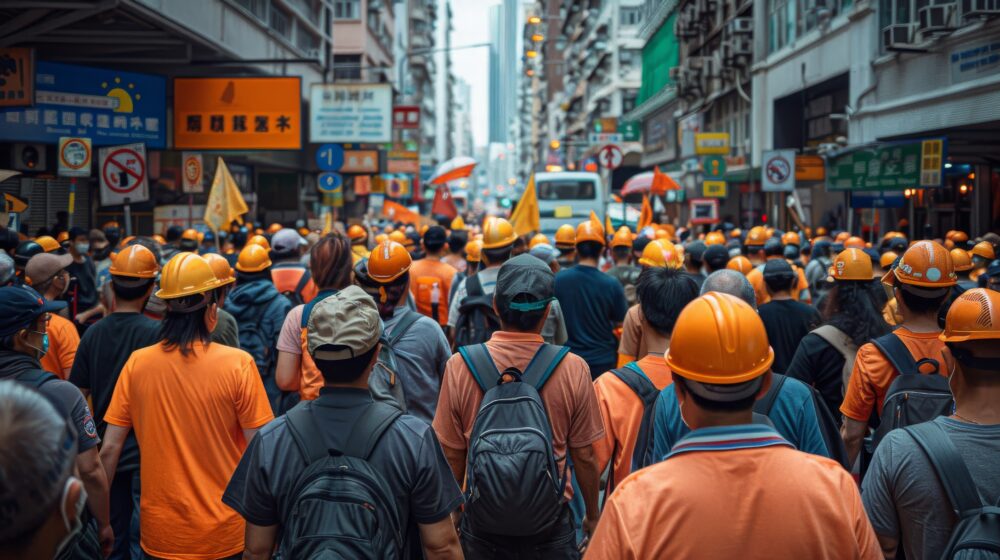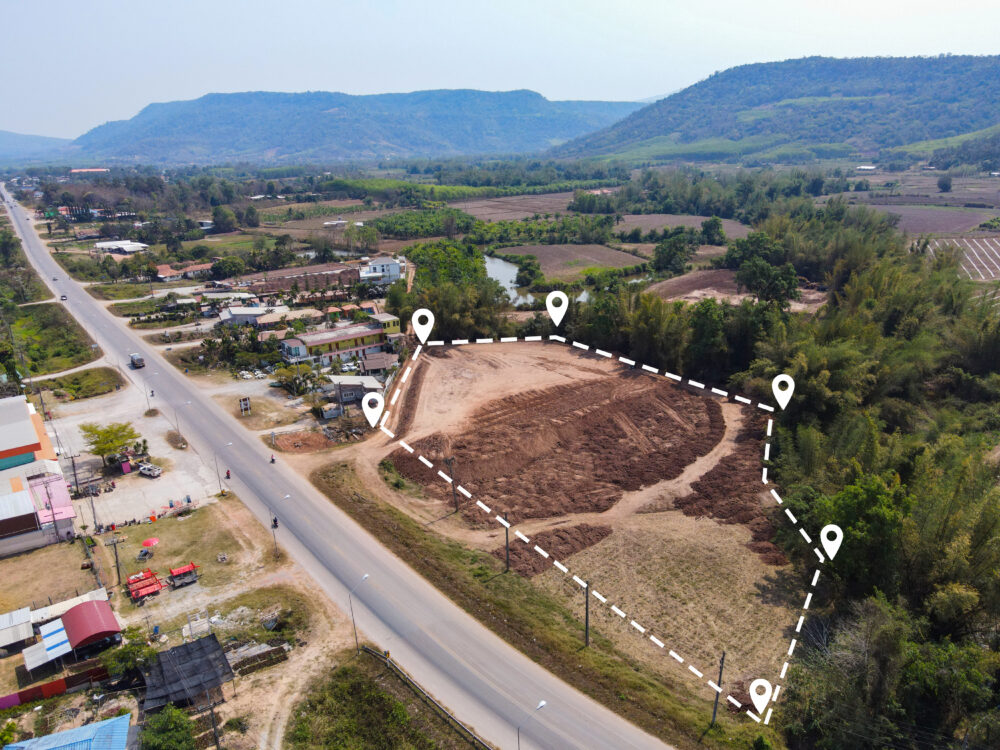Subleasing land from industrial zones to build factories for production projects is a popular choice for many enterprises with foreign owned capital when implementing investment projects in Vietnam. Accordingly, when subleasing land from industrial zones, enterprises must have thorough financial preparation and ensure compliance with investment regulations, land law, and related regulations. Through this article, Apolat Legal will present some important notes that enterprises need to pay attention to when subleasing land from industrial zones to build factories for production projects.
See more: Steps For Manufacturing Plant Acquisition
1. Land use mode when subleasing land in industrial zones
According to the provisions of the Land Law 2024, investors who are permitted by the State for lease to invest in constructing and trading infrastructure of industrial zones have the right to sublease land in the following 02 modes(1):
- For the land leased with annual land rent payments, the investor has the right to sublease the land with annual land rent payments.
- For the land leased under one-off arrangement for the entire leasing time: the investor has the right to sublease the land under one-off arrangement or annual land rent payments.
Accordingly, enterprises’s land use mode subleasing land in industrial zones to build factories for investment projects will depend on the land lease mode and the investor’s decision. Thereby, the rights and obligations of enterprises subleasing land associated with infrastructure in industrial zones are established depending on the land use mode.
2. Rights and obligations of enterprises with foreign owned capital when leasing land in industrial zones
Enterprises with foreign owned capital investing in production and business in industrial zones, when leasing land from the investor, are considered land users and have the basic rights and obligations of land users as prescribed in Articles 26 and 31 of the Land Law 2024. In addition, enterprises with foreign owned capital also have some important rights and obligations as follows(2):
- In the case of land subleased under one-off arrangement:
-
- Convey Land Use Rights and privately owned property affixed to the land in the industrial zones;
-
- Sublease Land Use Rights and privately owned property affixed to the land;
-
- Mortgage Land Use Rights and privately owned property affixed to the land at credit institutions permitted to operate in Vietnam, other business organizations or individuals according to the law; and
-
- Contribute Land Use Rights and privately owned property affixed to the land as charter capital of Vietnamese organizations, individuals, persons of Vietnamese descent residing overseas or foreign-invested business organizations according to the law.
- In the case of annual land rent payments:
-
- Mortgage privately owned property affixed to the land at credit institutions permitted to operate in Vietnam, other business organizations or individuals according to the law;
-
- Contribute privately owned property affixed to the land; and
-
- Sell privately owned property affixed to the land, or to sell privately owned property affixed to the land and the rights to lease stated in land lease contracts when they meet the requirements prescribed in Article 46 of this Law;
-
- Lease out privately owned property affixed to the land and rights to lease in land lease contracts;
3. Land use term in industrial zones
The operational term of an investment project outside of economic zones shall not exceed 50 years, commencing issuance’s date of the first Investment Registration Certificate(3). During the implementation of the investment project, the investor is allowed to adjust (increase or decrease) the operational term of the project, but it cannot exceed the 50-year limit(4).
According to the Land Law 2024, enterprises must ensure that the land use term for the investment project in the industrial zones corresponds to the operational term stated in the issued Investment Registration Certificate(5). In the event that the operational term of the investment project surpasses the remaining land use term of the industrial zones, the investor must seek permission from the competent authority to adjust the land use term, subject to the following conditions:
- The total land use term after adjustment does not exceed 70 years; and
- The investor must pay land rent for the land area whose land use term is adjusted.
In the case where the operational term of the investment project is shorter than the term of land use term in industrial zones, the sublessee and the industrial zone shall mutually agree on the lease term stated in the contract, ensuring this term aligns with the aforementioned regulations of the Land Law 2024 and Decree 43/2014/ND-CP.
4. Operational objectives of production projects in industrial zones
Each industrial zone has its own characteristics and planned functions, aligned with the construction planning and land use plans for the industrial zone. These plans have been approved and investment policies have been granted by competent authorities for infrastructure development projects within the industrial zone. For instance, Tan Thoi Hiep Industrial Zone primarily accommodates non-polluting industries like finished product storage or packaging for sectors such as aluminum, rubber, textiles, mechanics, and consumer goods(6). In contrast, Tay Bac Cu Chi Industrial zone focuses on non-polluting industries like mechanics, electronics, telecommunications, machinery, chemicals, pharmaceuticals, consumer goods, footwear, fashion design, ceramics, glass, plastics, high-grade rubber, wood crafts for interior decoration, export, and food processing(7)…According to regulations, the management and use of land in industrial zones, including concentrated information technology zones, must conform to the approved planning, land use plans, and construction plans(8). Therefore, before carrying out investment registration procedures, foreign investors need to consider their intended production sector to select and register their operations in a suitable industrial zone.
Subleasing land in an industrial zone to build factories for production projects is a strategic decision for foreign-invested enterprises. To ensure a smooth and effective project implementation process, companies need to pay attention to relevant legal regulations, from the form of land lease to their rights and obligations. Additionally, understanding the land use duration and the project’s operational objectives within the industrial zone is crucial to the project’s success. We hope that the information and notes in this article will provide enterprises with a comprehensive view and better preparation for their investment journey in Vietnam.
(1) Clause 3, Article 202 of the Land Law 2024
(2) Clause 5, Article 202 of the Land Law 2024
(3) Clause 2, Article 44 of the Law on Investment 2020 and Clause 1, Article 27 of Decree 31/2021/ND-CP
(4) Clause 2, Article 27 of the Law on Investment 2020
(5) Clause 4, Article 202 of the Land Law 2024
(6) Decision No. 5619/QD-UBND dated December 8, 2009, approving the adjustment of the detailed construction planning at a scale of 1/2000 for Tan Thoi Hiep Industrial Zone, Hiep Thanh Ward, District 12, issued by the People’s Committee of Ho Chi Minh City.
(7) Decision No. 3354/QD-UBND on approving the adjustment of the detailed construction planning at a scale of 1/2000 for Tay Bac Cu Chi Industrial Zone, Cu Chi District, Ho Chi Minh City, dated August 2, 2010.
(8) Clause 1, Article 202 of the Land Law 2024
Disclaimers:
This article is for general information purposes only and is not intended to provide any legal advice for any particular case. The legal provisions referenced in the content are in effect at the time of publication but may have expired at the time you read the content. We therefore advise that you always consult a professional consultant before applying any content.
For issues related to the content or intellectual property rights of the article, please email cs@apolatlegal.vn.
Apolat Legal is a law firm in Vietnam with experience and capacity to provide consulting services related to Business and Investment and contact our team of lawyers in Vietnam via email info@apolatlegal.com.





































